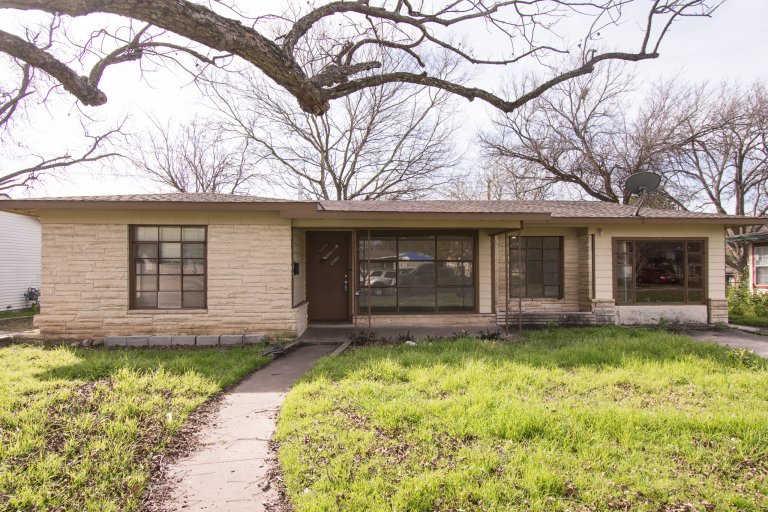Private Parts or Your Portfolio?

Private Parts or Your Portfolio?
I can talk about both with some expertise because 1: I have wasted a lot of money so I have learned a few things about it and 2: because I am a paramedic and let’s just say there are things you can’t unsee.
Why don’t we talk about money?
We don’t talk often talk about money in polite company because we have been taught that it is impolite to talk about it. Many of us would rather be seen naked than to expose our bank accounts. Okay, that’s the last mention of nakedness-I promise. We don’t want people to know how much we make or how much we have saved. We do however want them to see our shiny things and admire how “well” we are doing. Okay, maybe not everyone does but we have to admit that some of our purchases are for ego’s sake.
My family took this disdain for money even further than most and we acted as though the desire for money was beneath us. Or that it was an impure pursuit. Other families pursue it at the cost of everything else. All of these things represent our very complicated views of money.
Have you ever been at a dinner party and someone was bragging about all the money that they made? Did it make you feel awkward? Or have you seen someone driving a car that is likely way beyond their means and it made you feel bad for them? Did you wonder what kind of hole they were trying to fill? Have you ever felt like you would hate for someone to see your bank balance or credit card balance? These are all results of this complicated money relationship. We all have our issues with money. Some of us had none growing up and now they hoard it. Others had none growing up so now they spend it on all the things they couldn’t have as a kid. Some of us saw our parents fight about it and now we try our best to be responsible so we don’t suffer the same fate. A large source of marital problems stem from money issues. Usually two partners with different underlying views of money. Or maybe the same views and overspending but each blaming the other partner for their failures. I know a couple with whom the man gripes about the wife’s clothes spending and how they have no money or investments but he has every motorized toy imaginable. Both spending but both blaming the other.
While I am not of the mind that we need to discuss finances with total strangers or brag about money, I do think there is value in having a trusted group to discuss money with. I think that it is valuable to really analyze where your feelings about money come from. The book Your Money or Your Life delves deeply into this. It is a great primer on the topic if you want to dig deeper into your relationship with money. Dave Ramsey’s Total Money Makeover is also an interesting read and was my start down the financial independence path. And if you don’t like to read, you can listen on Audible while you drive. No excuses.
Quick story: I dated my wife in high school when I drove a cool Jeep with big tires. We went our separate ways for 13 years and then re-connected. On our first time to see each other again I pulled up in an old Honda Civic that I liked a lot but was not exactly an object of desire for many others. It had gen-u-ine leather-like seats and an amazing bike rack on the roof. Two doors and sporty and that thing could park in any parking space. It would go at least 70 miles an hour; you get the point: a real chick magnet. I downloaded music that she liked from high school and had it playing on my ipod because I wasn’t sure if it was a date or just dinner with an old friend; and the evening was fantastic. She still jokes about the car I picked her up in. And I had the benefit of knowing that she wasn’t after my money! I guess it worked because we’ve been married almost eight years and I, at least, am still very happy.
But we, too, come from different angles about money. Just writing about it brings up memories of arguments we have had about money. We have to find a middle ground. As we do in so many things in marriage; we give and we take. For every dollar spent or put into retirement, there is an opportunity cost. The opportunity cost is what that dollar could have been used for. Every choice has an opportunity cost. The video you watch on YouTube is at the cost of the other one you could have selected. And the options are endless these days.
Even my views on money change. As I recently wrote, I was completely anti-debt before but now I use debt for mortgages. But in a year I may change my stance on that. Is my wife supposed to keep up with my shifting perspectives? Probably isn’t fair. So we sit down and chart our course and discuss our goals. These include what we will absolutely spend money on and what we aren’t that interested in spending on. There is no right answer to this but it is great to be on the same page. We have a humble house and no desires for a larger home but we will spend way more than some people on travel. This is our choice. We have agreed on this. Yours may be completely different.
One of the most freeing feelings was when I learned that a car wouldn’t impress anyone. I started to drive what suited my needs and made me happy. If driving a jacked-up 80,000 dollar truck makes you happy and it is worth the opportunity costs then by all means I think you should. For me, the opportunity cost was all too often hours away from home working overtime to pay for the junk I bought. That puts it in perspective for me. Was the truck worth hours I wasn’t being a dad to my kids? Everyone has to answer these questions for themselves. And this isn’t meant to sound holier than thou. I work hard on my business and my job to fund the excursions we take and that often means time away from my kids or taking them into a nasty house to see if we want to buy and remodel it. But the choice is made consciously.
I have experienced periods where my spending wasn’t done “consciously” as well. When we both worked away from home well over forty hours per week, we made the most money but we spent the most money as well. We felt we “deserved” nice cars because of how hard we worked. A lot of our spending was because we “deserved” it. This was one of the biggest mistakes we made. We ate out constantly as we were too busy to cook (or at least claimed to be). And who wants to spend the two hours you have together before bedtime cooking and cleaning? We paid for more entertainment while we were off the clock to try to cram in the fun while we could all be together. We paid a nanny at times and preschool tuition at others. We truly expanded our lifestyle as our income increased. It seems to be the American way these days. Work hard so you can afford to work hard. After all you “deserve” a new car and suit. What would your colleagues think if you drove up in an old Honda Civic?
Your Money or Your Life describes money as your “Life Energy”. This is a very well-put description. The things we buy ultimately cost us hours of our life. This was a new way of looking at money, for me. We are building streams of passive income with real estate and it occurs to me that when those streams fulfill our needs, we no longer are trading life energy or hours for the things we purchase, but we are trading passive cash flow for the things we buy. It still is at the cost of something else but it isn’t at the cost of current labor. It is only at the cost of the labor used to build the cash stream.
If you want to take this investigation further, you can research extreme frugality and the F.I.R.E.(financial independence retire early) movement at places like Mr. Money Moustache’s site. Many of these frugalities make sense for those who are committed but don’t match my lifestyle or the standard of living I desire. We all have to find our place along the frugality/spending continuum. We also have to find our place along the debt/cash continuum. There is no right answer. I just hope that our decision is conscious and not just to fit into someone else’s expectations or to keep up with their standard.
I write about real estate but my real desire is to educate people about money as I learn more about it because I believe schools do nothing to prepare us. I want the topic to be made understandable and interesting. If we learn more about how to manage our money, we can teach our kids. Many of our parents didn’t understand it and thus couldn’t teach us. Many of them found it to be a source of strain in their marriages. One of my successful friends, Sergio Gamboa, tells me that his father always talked about money. He talked about business. But he was an entrepreneur and knew and understood business. This was such a foreign idea to me since we never spoke of money at the table in my house even though it was a cause of strain. My father-in-law says “La mejor herencia que le puedes dejar a tus hijos es enseñarles cómo sobrevivir sin ti” which translates to “the best inheritance you can leave your kids is to teach them the skills to survive without you”. I believe this to be true. I believe that if we understand money and teach our kids about it, that this is far more important than leaving them with a giant inheritance. It could offer them a less stressful life and even better marriages. It would give them the freedom to do what they love for a living and not just what paid the most. After all, how many people can you think of who have a job they despise but they are locked in with “golden handcuffs” because they have expanded their lifestyle to consume that amount of income.
A quote I really like goes something like this “true wealth is not getting what you want, but wanting what you have” Let that sink in. If you like old Honda Civics and your buddies drive big trucks, then embrace it. If you like big trucks and the hours are worth it, then embrace that. But the desire for more things can be an endless hole to fill if we don’t stop to evaluate what really matters to us. The things can quickly begin to own us and the handcuffs will click into place.
The Oracle of Omaha, Warren Buffett, lives in a modest house (at least by billionaire terms) because he likes his house. I think this is what it all comes back to. If you know what really makes YOU happy, you can pursue those things at the cost of other opportunities. You cannot do it all. Pick what matters the most to you. Which brings me back to my normal closing and the advice from the Oracle of Lawrenceville Georgia, my Grandaddy Lloyd, “Keep the main thing the main thing!”

